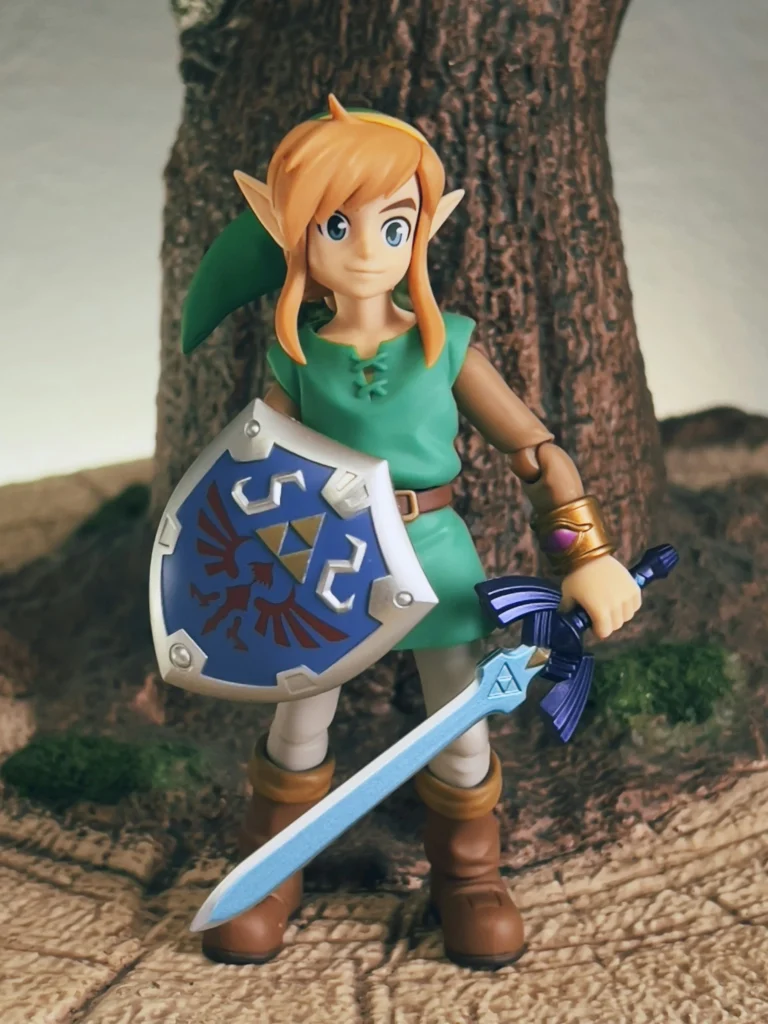If you browse the top creators in many channels on Twitch, you may notice the same thing I did: I don’t do that, I don’t talk like that, I’m not that good at that game, I can’t perform like that. There is intense pressure to fit into the mold of being a streamer—this often means over-the-top energy, impeccable skill in gaming, or an insider edge that small creators cannot achieve. Many creators have a persona while streaming that may be very different from how they are in real life—a mask, if you will. But as autistic individuals, we are actively trying to unmask, which kind of puts this whole thing at risk. Instead, autistic creators can lean into their authenticity in a way that neurotypicals cannot. Our authenticity can be our greatest asset, because of our special capabilities—like hyperfocus and special interests. This post explores how embracing your special interests and allowing yourself to be authentic—without masking—can lead to more engaging and sustainable content and help you connect with your ideal audience. [Just a quick editor’s note: while I like to focus on streaming and video content when I talk about content creation, understand that content can be a wide range of things and you can replace “streamer” with “blog writer” or “painter” in most of the contexts here. It helps me stay focused to keep on topics I understand and can speak to, but just change the nouns and I think it still works for the most part.]
Special Interests Defined: Your Untapped Content Superpower

I’ve defined special interests as something I’m interested in that I can hyperfocus on both at will and by accident. It’s not a very scientific definition, so let’s consult a proper source. Kaitlin Schifano defines special interest as, “An intense fixation that far exceeds a typical hobby or passion” (Schifano). She identifies that autistic individuals are likely to spend “large portions of their time … [and] their money” (Schifano) on their interests. For a fun little tidbit, I currently have five capture cards—only two of which are actively being used. I have three microphones and four cameras, only using one of each. Am I going to sell any of them? No. I might need them one day. Special interests differ from normal interests or hobbies in that they are often lifelong and become a part of that person’s identity.
Mastering Your Craft: The Autistic Advantage in Technical Expertise
Through research, trial, error, and perseverance, you’re quickly becoming an expert in the realm of streaming. You understand the difference between AV1 and H264. If you don’t, there’s your homework for the end of this article. You already know that YouTube accepts a higher bitrate than Twitch, but has inferior tools for creators, which leads many to question which platform they should stream on. You might even know that TikTok is a surprise up-and-comer in the realm of game streaming, with streams on TikTok having tremendous reach, but a very fluttery viewer scene. Your ability to not only absorb information but also find everything you need leads you to having a well-curated setup where everything has a perfect place. You might have spent way more money than you needed to get there, but everything is perfect. For now.
Authentic Passion: How Your Enthusiasm Fuels Engaging Content
When you identify the type of games you enjoy the most, you will find your genuine excitement quite infectious and will draw in viewers. My most recent growth on TikTok came from a drive to improve at the game Apex Legends until I was good enough to play with my son, who is a Predator in the game. This meant I needed to climb from Bronze ranks up to Platinum—as there is a limit on who can play together. For reference, ranks go Bronze -> Silver -> Gold -> Platinum -> Diamond -> Master/Predator. There is a three-rank maximum for playing together, and within each rank there are four subdivisions to get through. This was a months-long goal that had me smiling, screaming, and laughing my way through the ranks until finally reaching Platinum and doing a livestream with my son.
After achieving the goal, the game shifted for me.. it became work just to sign in. Bad matches would drag my mood down, and good matches weren’t enjoyable because they were sandwiched between bad matches. Ultimately, I realized that without a goal I was interested in, the game was not fun and I had to move on. I dabbled in Marvel Rivals before deciding to take another approach: crush my backlog. I will play through games I bought but never played, one by one, until the entire backlog is gone. Every stream will be new experiences and new content. I’m very excited.
If you’re the train type of autistic, there are a lot of train games to enjoy. Maybe you love city builders, or other God-type games where you can manage budgets but also manage individual people in your realm. Fighting games. MMOs. There are so many possibilities that when you find your interest, that interest will shine through in everything you do on stream.
Your Unique Perspective: Seeing Content Differently
Maybe you’re a deeply analytical autistic person, or maybe you see patterns in everything. Whatever your strengths, you see things differently than most people—and that perspective is going to give you a very different approach to everything you do, including the games you play and the ways you stream. Your uniqueness creates a freshness that will set you apart from others; just make sure you figure out what makes you unique and lean into that.
One of my key strengths is in analytics and pattern recognition, a clue perhaps identified at the start of this section. I have always loved playing MMORPGs—so Everquest, Final Fantasy XI and XIV, World of Warcraft, Elder Scrolls Online, etc. Especially in games where you can customize your builds, I would spend hours and hours theorycrafting and testing ideas. I probably spent more of my World of Warcraft gold on respecs than I ever spent on equipment. I apply this same approach to single-player RPGs, most recently Clair Obscur: Expedition 33 and its Pictos system, which enables incredible build customization for each of its playable characters. I’ve always enjoyed systems like this, dating all the way back to the original Final Fantasy, where I experimented with weird party combinations to see just what I could do to that game. Final Fantasy VI’s materia system offered some amazing choices—my favourite was Terra equipped with a Genji Glove and a Master’s Scroll, scoring 8 attacks per turn—each doing 9999 damage—on a character intended to be a magic wielder.
When you identify your strengths—and every autistic person should be on a journey to identify and lean into their strengths—you can start to think about how you’re going to apply that to your stream.
Building Sustainable Content: Avoiding Burnout Through Authenticity

You might realize that you love streaming, but you also need to love the content you’re streaming. I struggle to play the same game for long periods at a time—and usually when I quit, I quit forever. This doesn’t make me compatible to be a one-game streamer, as I will eventually want to quit it. I recently saw a lot of growth while streaming Apex Legends, and as soon as I moved to something else, I saw my follower count dropping. I’ve always identified as a variety streamer, but playing one thing for over a month led people to attach themselves to me who maybe wouldn’t have if I was playing something different week to week.
If I continued playing Apex, I would quickly burn out and wind up stepping away—losing everything in the process. As it stands, moving away from Apex, I’m back to averaging similar views, but now my videos aren’t always on the same topic. I’m cultivating a following that enjoys me as a creator, and doesn’t care as much about the game I’m playing. This drives up my sustainability because I can go live playing anything and my regulars will still come to say hi. Even if it’s not a game they enjoy playing or watching, they still come by. If I drove myself to burnout, I’d lose everything—it’s critical that doesn’t happen.
But, if you’re one of those people who has only ever played Call of Duty, and you play every Call of Duty game from the day it releases until the day the next one comes out, there’s an audience out there for you too.
Maximizing Growth: Where Special Interests Meet Niche Audiences
One thing I haven’t explored is how I can attract an audience of similarly analytical minds, who may help me see things I haven’t recognized yet—people who can work with me to see the inner workings of new games.
If your special interest overlaps with an established niche, you may be able to capitalize on that to enhance growth. I understand that retro games have a fairly large niche audience, so if you’re discovering new things about retro games, there’s a lot of potential there. Speedrunning is another area that I know little about, but records are constantly being broken in 20-year-old games. This is where it probably helps to be a part of associated subreddits, Discord servers, or other community centres based around that interest.
But what do you do if you haven’t identified an overlapping special interest yet?
Finding and Focusing Your Content Superpower (Special Interest)
You find it! You probably actually already have special interests, even if you haven’t realized it yet. There’s something out there that gets your motor running, and not in a weird way.
Identifying your Core Interests

What do you spend hours thinking about? Researching? Doing? When you go to bed, do you make a mental note about what you’re going to look up tomorrow morning when you get up? Do you sometimes get up in the middle of the night after waking up to a random thought, just to Google search and save the results for the morning?
What topics do you love to discuss? Whenever I heard colleagues discussing MMOs, I would try to join in the conversation because it was a topic I loved discussing. There was a time, when World of Warcraft was at its peak, and every new game that came out was the next “WoW Killer.” Games like Rift, Warhammer Online, and Aion. Even games like Tabula Rasa and Auto Assault tried to break into what World of Warcraft built. I loved them all. MMOs came out so fast in the mid-2000s, and they all had physical releases. I would race down to Future Shop on release days to pick up the newest game—they were all $60 back then, plus a $15/month subscription fee.
When you think about areas where you may fit into a niche, like the aforementioned speedrunning, retro gaming, etc, what problems do you like to solve? A lot of speedrunning seems to be finding the next time-saving exploit or optimized route. Many MMOs offer customized builds, but you’re still bound by the strength of your equipment. Some games, however, may have lower-strength equipment with unique qualities that can make an otherwise-weak character much stronger. This is more common in single-player RPGs, where you might equip a Ribbon in Final Fantasy to become immune to afflictions, but some MMOs have dabbled in such systems as well.

I’ve talked about some of the very common, widespread content niches, but that doesn’t mean you have to. Special interests can vary wildly, and the niches attached to them can be just as varied. The Legend of Zelda timeline and branching realities were anybody’s guess before 2011, but games have come out since then, and many people online have their own version, modified versions, or deep explanations after extensive looks through the lore. When you add in a 10,000-year time skip that tries to merge all three timelines into one, as Jeffrey Parkin from Polygon notes, things get even more complicated (Parkin).
The takeaway here is compelling content comes from a variety of sources—and you can be one of those sources if you focus your special interest in a way that can share that content with others.
From Interest to Content
Let’s roleplay for a moment. You are an RPG fanatic. You can’t get enough. You’ve played every Final Fantasy, every Dragon Quest, and every Persona game. You can speak in depth about the story, the characters, and the mechanics of every game you’ve ever played. What you liked, disliked, how you beat the secret boss, what level you were. It’s all right there. How do you turn that into content?
Are you going to do tutorials? “Final Fantasy VI’s Materia System Explained in Five Minutes.” Reviews? “Persona 5 Royal is an excellent addition to the base game that enhances nearly every good part of Persona 5. The third semester felt a little weaker than the first two, due to the limited social activities and focus on one specific storyline, but experienced players likely won’t need that extra time anyway, so it doesn’t detract from the experience for most.” Maybe analyses? “Final Fantasy Tactics and Final Fantasy XII take place in alternate universes, despite both being set in Ivalice, and here’s the proof.”
If you’re looking at something like analysis, you might need multiple videos or articles to cover all of the topics. Can you break it into multiple pieces? Maybe you start with the history of Final Fantasy’s mysterious judges? And use that explained lore to expand in a followup video, then you put a YouTube playlist of everything in order, and you put that at the top of your YouTube channel. You can use visual aids, diagrams, and structuring—even things like YouTube chapter markers can help organize things.
Embrace Authenticity: Unmasking for your Audience

As a late-diagnosed autistic adult, I am all too familiar with the process of unmasking. A lifetime of learned habits and behaviours that needs to be undone. The first place I began unmasking was at home, and I’ll be damned if I’m going to mask on stream—my quirks, my strengths, my weaknesses, the faces I make and the songs I sing. They’re all part of the show, and I do it without shame or embarrassment.
What does Authenticity mean for Autistic Creators?
As a child and teenager, I spent hours in front of a mirror, practicing my smiles, so that the next time someone said, “Say cheese!” for a picture, I’d look normal—and not like a serial killer. This was an age before digital cameras, so it’s not like they could check and re-take the picture. I wouldn’t find out I’d done it again until the class photos came out, and there I am, at the back of the class (I was abnormally tall growing up), dead eyes and murder mouth.
It took some time since my diagnosis to fully understand what the doctor meant when he told me that being autistic now means I was autistic growing up. But looking back and analyzing my behaviour, my interests, my social interactions, and it’s clear as day to me now. My internal monologue would constantly criticize me for not thinking the same way—people would ask me why I was different, or tell me I was weird. A Henry Ford article perfectly summarizes something I want to highlight: “Masking is a life skill [autistic individuals] develop to blend in with their peers” (Henry Ford Health Staff). While other kids were building other life skills, the autistic kids were focusing their efforts on basic survival. We seemed weird or wrong or broken, because we were. We were effectively stunted in our development due to the intense pressure to mask our authentic selves.
Your content is your portal to authenticity. It’s not about being perfect. It’s not about a performance—even if it is sort of like performing. It’s about letting your natural communication style, your thoughts, and your quirks shine through. Even as I write this, I ask myself, am I putting too many personal anecdotes in this? Am I not including enough? Will people even read this? But you know what? I will read this—and I will post this—and I will be proud of myself for contributing something to the community that I feel has value. And one day, someone will read this article, extract value out of it, and hopefully email me a note about how they got value out of it.
How to be Authentically You

- If you don’t feel comfortable looking directly at the camera during a livestream, don’t. Position your camera on the opposite side of your monitor from your chat so it’s obvious when you’re looking at chat—but you absolutely needn’t look directly into the lens to connect with people.
- Be direct and clear—the same way you would appreciate people communicate with you. If you use jargon, make sure you define it—someone will be there who is there because it’s you, not because they like the subject. They won’t understand the jargon, and we don’t want to alienate the people who like us for who we are.
- Embrace Your Quirks. If you use fidget toys, make that a part of the show. If you have unique mannerisms that reveal feelings—you squeal when you’re excited, you bounce when things get intense—embrace those moments. Define those moments. Bring your audience on a journey of understanding exactly what makes you special. Consider things like an animated bounce emote so when things get intense, your chat knows it’s time to start spamming your bounce emote. They can celebrate you while you work through feelings that might have otherwise made you self conscious. But by owning and embracing it, you make it part of the experience, and you say, “Yes, this is me. And this is why I’m awesome.” I stick my tongue out when things get intense, and as I write this, I’m realizing I need an emote of me sticking my tongue out for just this purpose.
- Set Expectations. I identify my autism in my social media and on my Twitch and YouTube channels, though I don’t highlight my quirks in my about me sections. I do highlight inclusivity in my rules, but I don’t even truly know all of my quirks yet. If I notice something getting noticed by my chat, I may elect to add a note about it, but for now, things are pretty chill. If you have much more noticeable quirks, you might want to identify them early so people aren’t surprised.
- Your Passion Will Shine. As you embrace authenticity, your enthusiasm and passion for your special interests will shine through and create entertainment for your viewers.
Building Your Community: Connecting with your Niche Audience

By focusing on your special interests and being authentic, you will naturally attract an audience who appreciate that type of content. Remember, though, that your audience might not be on just one platform—and may be underrepresented on a given platform. For example, X (formerly Twitter) has recently become a less desirable platform for those with disabilities—many of whom have migrated over to Bluesky—if they haven’t given up social media altogether. Eric Garcia highlighted some of the policy changes at Twitter, where the accessibility team was laid off in late 2022 (Garcia). Later, in early 2025, many Twitter users moved over to Bluesky, with a huge push from Reddit, as subreddits began banning Twitter links en masse. By putting yourself out there on multiple platforms, you increase the reach your content has—though you also increase the amount of time and effort required to contribute, so a healthy balance is required.
Communities Thrive with Shared Interests
By creating content that drives conversations to the areas you are interested in, you get to have meaningful conversations on topics you are both interested and knowledgeable in, making for more educational and impactful content.
If you create video content on, YouTube or TikTok, your comment section is a living, breathing beast. Engaging with your commenters, especially those who post in the first 24 hours of a video, gives every video the feeling that you are engaged in an ongoing conversation. If you write for a blog, replying to comments or emails you receive goes a long way in solidifying your authenticity and passion. Something like Discord may also benefit you—I struggle with the live chat and instant access of Discord. I like when I’m offline, that I control when and where I reach out to people. But for someone skills in community management, Discord can be a tremendous asset to your content platform, as it can be a home for your most passionate members.
Niche communities are often both inclusive and engaged. If you find yourself overlapping with one of these communities, you are in for a treat—as they will likely welcome you and everything about you. If you don’t appear to be a part of any niche at first, keep an eye out—maybe you’ll be surprised to learn there is a community of from-scratch croissant bakers out there who just haven’t found your recipes yet.
Your unmasked and authentic approach to content will naturally create a space where people feel comfortable being themselves—an inclusive community where they can be their authentic selves as well. Make sure you embrace that inclusivity with appropriate behaviour and rules for your community.
Your Greatest Strength is Your Voice
Trying to conform to what society expects of us is exhausting and unnecessary—especially online. Be yourself, and let your true voice shine through. Hyperfocus, depth of knowledge, info dumping—these quirks become strengths: valuable and engaging. Embrace them and others will embrace you.
Stop trying to fit into a society not built for you. Your unique autistic voice, empowered by your special interests, is what the content world needs.
References:
- Special Interests in Autism, Kaitlin Schifano, Prosper Health
- Legend of Zelda timeline, explained, Jeffrey Parkin, Polygon
- Autism Masking Is Common. Here’s How to Recognize and Offer Support, Henry Ford Health Staff, Henry Ford Health.
- Elon Musk is locking Twitter’s disabled users out of his ‘town square,’ Eric Garcia, MSNBC


Leave a Reply